- News
- Reviews
- Bikes
- Accessories
- Accessories - misc
- Computer mounts
- Bags
- Bar ends
- Bike bags & cases
- Bottle cages
- Bottles
- Cameras
- Car racks
- Child seats
- Computers
- Glasses
- GPS units
- Helmets
- Lights - front
- Lights - rear
- Lights - sets
- Locks
- Mirrors
- Mudguards
- Racks
- Pumps & CO2 inflators
- Puncture kits
- Reflectives
- Smart watches
- Stands and racks
- Trailers
- Clothing
- Components
- Bar tape & grips
- Bottom brackets
- Brake & gear cables
- Brake & STI levers
- Brake pads & spares
- Brakes
- Cassettes & freewheels
- Chains
- Chainsets & chainrings
- Derailleurs - front
- Derailleurs - rear
- Forks
- Gear levers & shifters
- Groupsets
- Handlebars & extensions
- Headsets
- Hubs
- Inner tubes
- Pedals
- Quick releases & skewers
- Saddles
- Seatposts
- Stems
- Wheels
- Tyres
- Health, fitness and nutrition
- Tools and workshop
- Miscellaneous
- Cross country mountain bikes
- Tubeless valves
- Buyers Guides
- Features
- Forum
- Recommends
- Podcast
review
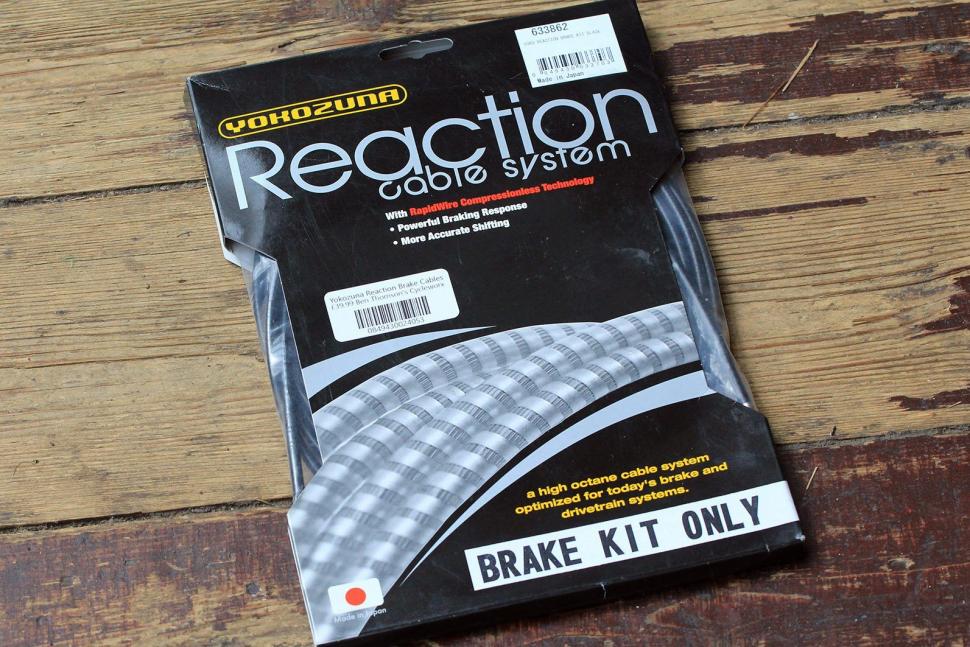 Yokozuna Reaction Brake Cable System.jpg
Yokozuna Reaction Brake Cable System.jpg£35.99
VERDICT:
Improves braking performance to unheard-of levels
Weight:
300g
Contact:
At road.cc every product is thoroughly tested for as long as it takes to get a proper insight into how well it works. Our reviewers are experienced cyclists that we trust to be objective. While we strive to ensure that opinions expressed are backed up by facts, reviews are by their nature an informed opinion, not a definitive verdict. We don't intentionally try to break anything (except locks) but we do try to look for weak points in any design. The overall score is not just an average of the other scores: it reflects both a product's function and value – with value determined by how a product compares with items of similar spec, quality, and price.
What the road.cc scores meanGood scores are more common than bad, because fortunately good products are more common than bad.
- Exceptional
- Excellent
- Very Good
- Good
- Quite good
- Average
- Not so good
- Poor
- Bad
- Appalling
The Japanese firm Yokozuna (from Wikipedia: Yokozuna (横綱) is the highest rank in sumo. The name literally means "horizontal rope") has been supplying high-end cable systems to pro road teams and manufacturers for decades. Available to consumers since 2005, the Reaction Brake Cable System will give your cable-actuated rim or disc brakes a reputation that they frankly don't deserve. Almost like they are attached to a rope being pulled by a sumo wrestler, if you will.
Yokozuna cables come as a brake set (£35.99), a shifter set (£25.99 ), or a combination of the two (£59.99). Their proprietary 'jet lubed' process fills the outer with just the right amount of special grease, to keep things ultra-slick.
I'm the first to admit that it's nigh-on impossible to get a truly accurate like-for-like comparison between cable systems, so all I can offer you is what can be observed from one person's experience over a few months of installation then use.
Under pressure
For the uninitiated, there are two types of cable outer on your bike – gear and brake. Gear cable needs high accuracy through low compression loss, but is subject to tiny forces. Brake cable is more tolerant of compression loss, but must withstand comparatively enormous forces. Therefore the cables are built differently.
Gear cable has lots of thin wires running the length of the outer (longitudinally), so in theory when you shift gears the outer does not compress, keeping things accurate as all the tension put on the cable end at the shifter is transmitted to the derailleur. Brake outer is spiral-bound, making it impossible for the inner wire to burst through the outer under hard braking, but the trade-off is that there is room for the spirals to compress together – there's a tiny amount of space between them, otherwise they wouldn't be able to flex around the bends of your bike.
Yokozuna's magic sauce is the double layer of longitudinal wires wrapped in a circular binding to keep them in place. Other brands such as Jagwire use a Kevlar wrap to keep the longitudinal wires in place on their 'compressionless' housing, but in my opinion they don't do as good a job.
Critical path
Because of the double layer, the Yokozuna outer is stiff. Very stiff. Yokozuna advises: 'Brake housing is stiffer than normal housing. Set-ups that need tighter bends may not be possible with our Rapidwire brake housing.' In reality I had no issues fitting a full run of the housing inside the frame of my Merida Ride 5000 – but Merida has done a pretty good job of minimising bends and putting the cable entry/exit points where they should be. I could imagine on more esoteric designs or full-suspension bikes, things could get pretty tight.
As with all internally routed setups you need to have a good plan for getting from A to B, the easiest of which is not to pull out the old outer before you've threaded the new outer onto the end of the run using a protruding bit of the old inner cable to hold it aligned. A combination of pushing the new while pulling the old should do all right – smear a light layer of grease on the new outer to make things a lot easier.
Tooled-up
Yokozuna advises: 'Housing is very stiff and strong; for best results cut with a sharp cable cutter or a Dremel tool. We do not warranty housing ruined with dull cutters.' I concur – the outer is much harder to cut than standard Shimano SLR outer. I cannot imagine doing this with a set of pliers. I'd suggest spending £10-15 on a decent set of cable outer shears as a once-in-a-lifetime purchase and be done with it.
Being a certified fettler, I use a bench grinder to tidy up my cable outer ends – and on the Yokozuna outers it earnt every penny of its £18 price. The combination of the two layers made for quite devilish work getting them completely tidy and square-on. I found the outer spiral binding to be very springy, and under even a small amount of heat from the grinding process the plastic sheath gave way, allowing the very sharp end to spring free. I'd recommend practising on an offcut to get your eye in before a final, critical-length installation.
Getting the ends clean and tidy is critical for subsequent installation into the shifters, where the cable is inserted without any sort of endcap. You should check the depth of the hole, then lightly mark the outer to be one hundred per cent certain that it's seated all the way home. I found the fit to be so tight (Ultegra 6800 levers) that I had to partly remove the lever from the bar to allow the outer to slot in the hole – even the slightest bend in the outer trying to do this with the lever bolted to the bar made the job impossible. Again, a dab of smeared grease on the outside made the exercise easier.
As mentioned, you really need a bench grinder or at the least a Dremel tool to tidy the ends of the cable, so once I'd threaded everything through and confirmed the correct length, I then unthreaded them, putting the old housing back in place (with inner as a guidewire) to allow a proper tidy-up of the second end. This sounds like a faff, but in reality takes only a minute or so – assuming you remember to reinstall the old outer/inner as a guide. If you don't, god have mercy on your soul and wallet as you head off to purchase Park's rather nifty Internal Cable Routing Kit...
> Bike tools: the kit you need to do your own basic bike maintenance
Once your outer is all settled in place, the inner is installed just like any other. It's stainless steel to remove corrosion as a risk and die-drawn to further reduce friction. The inner ends are both road and flat-bar lever-compatible, so make sure you cut off the right one.
Rinse and repeat for the front brake, being acutely aware of how the cables interplay at the front end when turning the bar. When you re-secure your bar tape you might find you need a bit more electrical tape to hold the much stiffer outer in place – it's unlikely that the tacky branded stuff included in bar tape packages will be up to the job.
Reaction time
The benchmark for this test was the Jagwire KEB-SL Kevlar-wound outer, which came factory-installed on my Merida. At one end the aforementioned Ultegra 6800 lever, at the other the excellent TRP Hy/Rd hydraulic cable-actuated calliper. While fully hydraulic systems have come down markedly in price there is still a premium attached, and people looking to retain the Ultegra levers might not be keen to fork out the £630 RRP (often half that) for the same shifting but better braking. You can pick up a set of new TRP Hy/Rds for around £100 (used for less), spend the £36 on Yokozuna cable, and hey presto!
> Everything you need to know about disc brakes
I think this is where the Yokozuna cable system fits best – as a means to get hydraulic-grade braking for full-length rear cable runs at a fraction of the cost. And I can honestly say that is my view after two months riding the new setup – that my brakes are now on-par (as memory best serves) with the hydraulic RS-685 levers/callipers I used earlier in the year. In fact, the performance change using the Yokozuna cables over the Jagwires was so marked that the first few rides I had to make a conscious effort to think about braking – fewer fingers required, more control on tap, and on one occasion where an emergency stop was required, a stern word with a recalcitrant muscle memory used to pressing down much harder on the stop button. I don't recall being that impressed with the Jagwire system when it was new – to the point of wondering if it was the compressionless version. So again, anecdote – but informed anecdote.
A major issue with full-length cable runs is the inherently higher friction preventing the calliper return spring from retracting the inner cable when you release the brake – leading to a rattling lever that can be maddening. With the Yokozuna cables the lever snaps back into place every time, no visit to the niggling noise therapist required.
The long run
Only having done two months' riding since installation, my anecdotal greatly improved performance can only be that. I'll pop back and update this review next spring, after a winter's worth of water, crud and freezing temperatures have done their best. But based on the experience to date, I suspect I'll only have good things to report.
Verdict
Improves braking performance to unheard-of levels
road.cc test report
Make and model: Yokozuna Reaction Brake Cable System
Size tested: n/a
Tell us what the product is for, and who it's aimed at. What do the manufacturers say about it? How does that compare to your own feelings about it?
It's for people who want better braking, for cables.
Yokozuna says: "Now available just for Shimano/SRAM road brakes! Saves you some money if you don't need shift cables at the same time. Long enough for disc brake road/CX bikes!
Featuring RapidWire Compressionless Technology
A high-octane cable system optimized for today's brake and drivetrain systems. The special housing delivers excellent compressionless performance for enhance cable response, especially for brakes, which has been hard for other makers to produce."
Tell us some more about the technical aspects of the product?
Contents:
RapidWire Brake Housing:
- 5mm x 3500mm - 1
(Note: Housing is very stiff and strong; for best results cut with a sharp cable cutter or a Dremel tool. We do not warranty housing ruined with dull cutters. )
Stainless Brake Wire (Road Shimano/SRAM)
- 1.6mm x 1350mm - 1
- 1.6mm x 2750mm - 1
PRODUCT FEATURES
- The first truly compressionless brake housing; boosts braking power from road rim brakes to mechanical discs
- Brake housing is jet-Lubed END2END for smoother cable action.
- Tightly wound die drawn stainless steel cables
Available in smoke, black and white.
Rate the product for quality of construction:
10/10
Rate the product for performance:
10/10
Rate the product for durability:
8/10
No reason not to think it will last a loooong time.
Rate the product for weight (if applicable)
5/10
Not overly light, hardly surprising given the extra metal involved.
Rate the product for value:
7/10
Tell us how the product performed overall when used for its designed purpose
Excellent. Can't fault it.
Tell us what you particularly liked about the product
The low friction, meaning the lever snapped back. And the brake feel. My oh my.
Tell us what you particularly disliked about the product
Fitting can be painful-to-impossible without the right tools.
Did you enjoy using the product? Yes
Would you consider buying the product? Yes
Would you recommend the product to a friend? Yes
Use this box to explain your score
The only thing I'd mark the Yokozuna cable set down on would be the outer casing plastic – it can be tricky to trim off just right to hold the spiral wrap in place.
About the tester
Age: 43
I usually ride: Merida Ride 5000 Disc My best bike is:
I've been riding for: Over 20 years I ride: A few times a week I would class myself as: Expert
I regularly do the following types of riding: cyclo-cross, club rides, general fitness riding, mountain biking, Dutch bike pootling
Living in the Highlands, Mike is constantly finding innovative and usually cold/wet ways to accelerate the degradation of cycling kit. At his happiest in a warm workshop holding an anodised tool of high repute, Mike's been taking bikes apart and (mostly) putting them back together for forty years. With a day job in global IT (he's not completely sure what that means either) and having run a boutique cycle service business on the side for a decade, bikes are his escape into the practical and life-changing for his customers.
Latest Comments
- Sredlums 19 min 58 sec ago
"ruin the wax on a molecular level"...
- chrisonabike 21 min 46 sec ago
I'm gonna guess something like "front wheel skids always throw you off but not rear wheel ones"......
- hawkinspeter 32 min 40 sec ago
How can that possibly not be a deliberate decision?...
- JMcL_Ireland 32 min 43 sec ago
SBS in Australia. They have the Tour, Vuelta, Giro, and a bunch of other races - all free and live. I think they do catch-up as well
- Rendel Harris 36 min 21 sec ago
Well you don't even know how to spell it…
- jayinjapants 4 hours 3 min ago
Mine takes 38s but the clearance on the front derailleur is rather tight.
- Simmo72 10 hours 9 min ago
TNT can sit on my seatpost and swivel. Not giving a penny to the vile bean counters.
- C3a 11 hours 59 min ago
I agree. Off to sign.
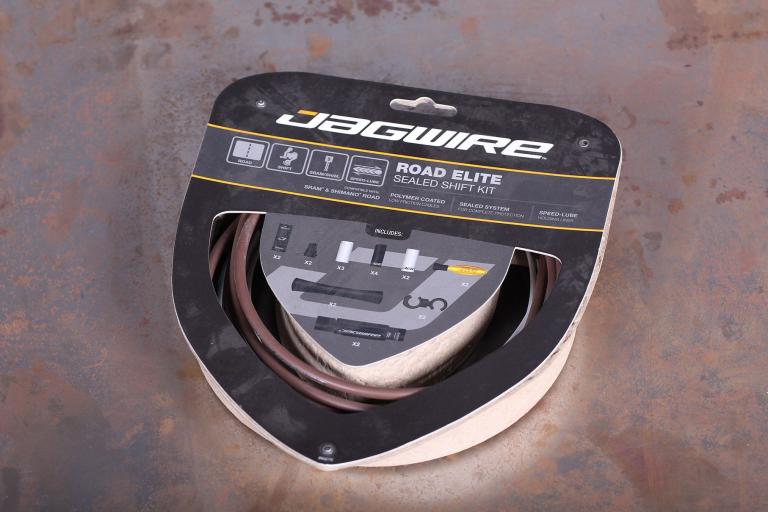
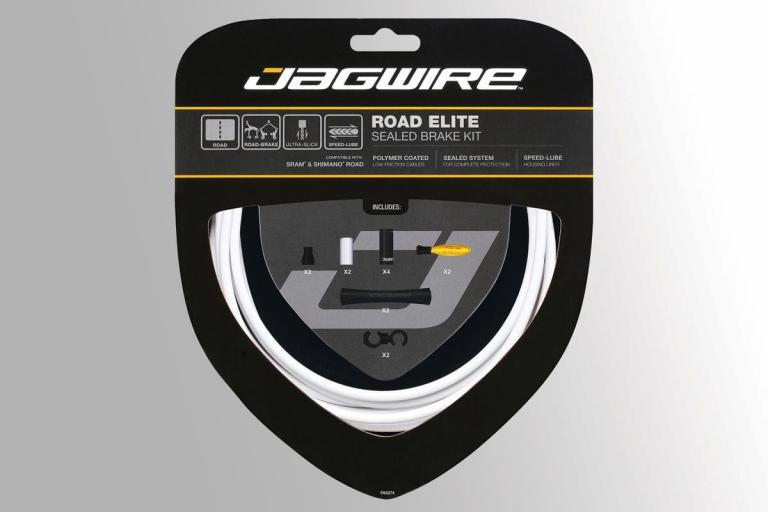
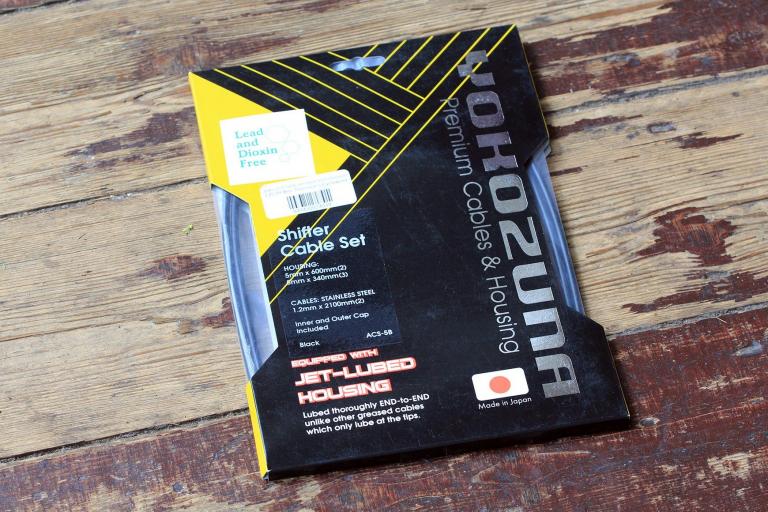
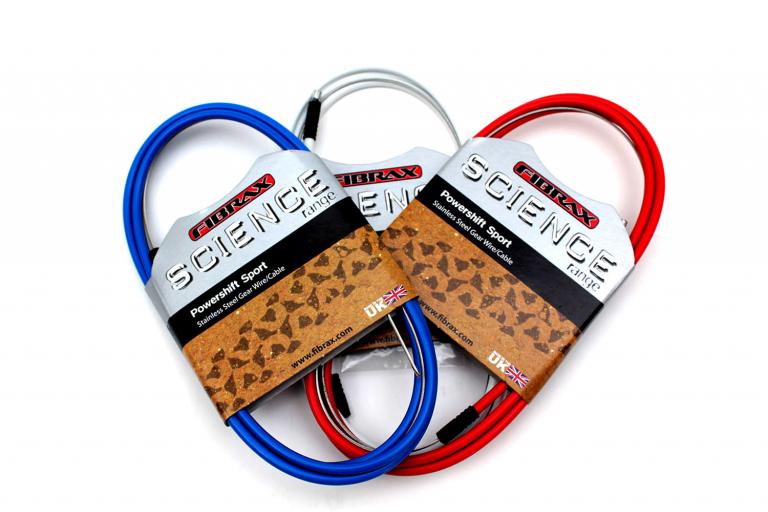
Add new comment
14 comments
Excellent for my TRP Hy/Rd discs. Available from:
https://cycleworx.co.uk/collections/yokozuna-cables/products/yokozuna-re...
Road have reviewed something that is not available in the UK at the price they quoted- not very good
thanks for the help, PeakBoy, but Cycleworx sell the brake set at £45, which is a lot more thean Road reviewed it at
I went onto the Yokozuna website too - 2 major problems (i) they can't quote you postage until after you order so that could signifigantly add to the price given it comes from Japan and irrespective of that you'll then need to pay VAT when it arrives which will push the price up 20% (ii) the page you enter your credit card details doesn't even have basic security (no lock showing on browser)
Also, can you still buy these? A quick look on the internet shows none of the big firms (wiggle/ Sigma/etc) stocking this anymore.
Anyone used them on standard rim brakes and noticed the same kind improvement when going from standard Shimano outers? I realise the improvement is always going to be more noticeable on cable discs but keen to know if this is worth it for rim brakes
My experience with Jagwire compressionless housing also mirrors that in this review. I have found Shimano SLR housing works better on my cable discs. I have no idea why.
My first set of Nokons lasted almost 10 years, couldn't pull the cut cables back trough the first outer so needed to replace that, just about managed to use the rotting aluminium outers. Lasted abour 5 more years. They will be replaced in black.
Will be buying a set of Nokons for my Rohloff.
I use middleburn cable oilers for the XTR cables on my commuter, lasts a lot longer, so don't have to replace every year. Big savings in the long run.
So do these wonder-cable housing last longer than Shimano? If I have to replace them every year along with my inner cables, I'm not sure its worth it. If the housing lasts much longer and I can simply replace the inner cable, thats a win
It's in case you give up trying to fit the Nokon cables and need a bit of saucy entertainment for the evening. Or am I thinking of the wrong grinder ?
?
I was just about to ask about the grinder too.
(I'm sure this thread had a useful discussion on the Nokon system too.)
Easier than a grinder and leaves a nice finished end to the outer for £2.99
http://www.screwfix.com/p/tube-cutter-3-28mm/49428
What's with the grammar on this?
If these make so much difference, I'm definitely getting some for my Di2 hydraulics.
I'm looking to rewire my house with them!
What's going on with the re-publishing of old reviews. I do value Mike's reviews, but it does seem odd to effectively change their publication dates.
This one's even tagged as 2016!